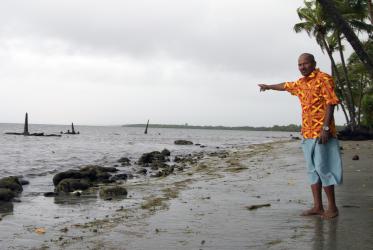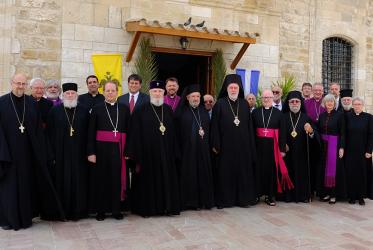Displaying 1 - 12 of 12
The cry of the Papuans in Indonesia
14 November 2019
Anglican–Orthodox International Commission releases communique
01 November 2018
“Walking Together” project explores pilgrimage traditions
19 December 2016
Pilgrimage of justice and peace gives vision for WCC programmes
22 November 2014








